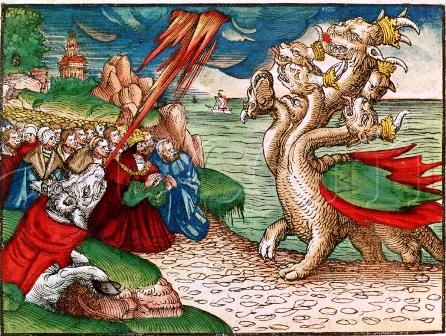For some, studying Revelation can become a mere mental exercise, void of life application. They simply speculate over the meaning of the book’s mysterious symbols—all without necessarily considering what it calls them to do.
 Of course, Revelation does challenge the mind. Scholars who devote their lives to studying it will never figure out every detail. Nonetheless, like all Scripture, Revelation is intensely practical. And one unmistakable theme is the need for believers in Christ to persevere in their faith and obedience. In fact, the book teaches that the only true believers are those whose faith endures through trials and challenges. Consider the plentiful references to perseverance:
Of course, Revelation does challenge the mind. Scholars who devote their lives to studying it will never figure out every detail. Nonetheless, like all Scripture, Revelation is intensely practical. And one unmistakable theme is the need for believers in Christ to persevere in their faith and obedience. In fact, the book teaches that the only true believers are those whose faith endures through trials and challenges. Consider the plentiful references to perseverance:
- The Apostle John tells the Christians in Smyrna to “be faithful unto death,” for only then will they receive the “crown of life” (Revelation 2:10).
- The church in Thyatira is told to “hold fast” and that the one “who keeps [Christ’s] works until the end” will receive “authority over the nations” (Revelation 2:25-26).
- In chapter 7, the multitude in heaven is comprised of those who endured in faith through “the great tribulation” (Revelation 7:14).
- Chapter 13 issues “a call for the endurance and faith of the saints” (Revelation 13:10), which is echoed in the subsequent chapter, where John adds that the redeemed are those who refuse to defile themselves with sin and who “follow the Lamb wherever he goes” (Revelation 14:4).
- The final chapter exhorts the righteous to continue doing right and the holy to continue the pursuit of holiness (Revelation 22:11).
Such calls to perseverance make it abundantly clear that Revelation is not just a book about the future, but about how to live in the present.
(Note: This article is presented within The Biblical Story Course as an Insight under Books of the Bible, Perseverance in Revelation).
<!-- RefTagger from Logos. Visit http://www.logos.com/reftagger. This code should appear directly before the tag. -->
//
//